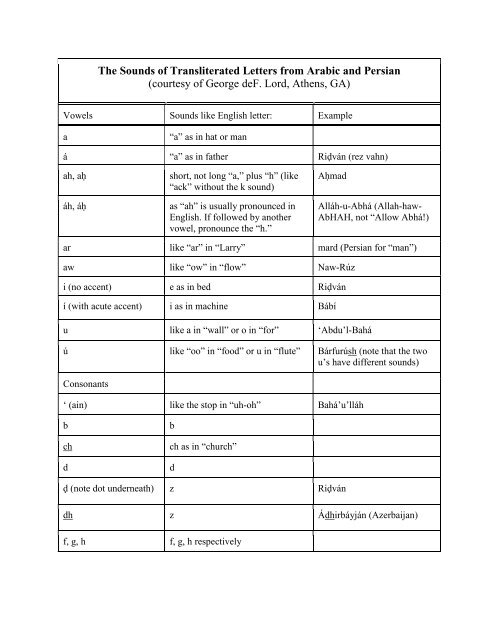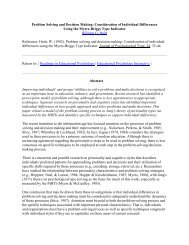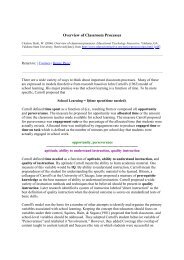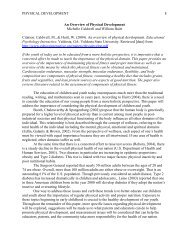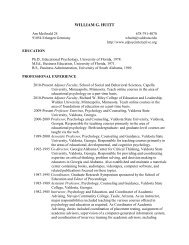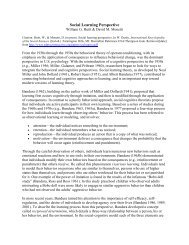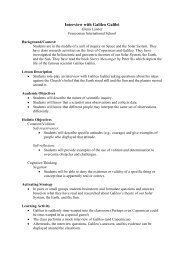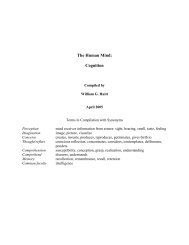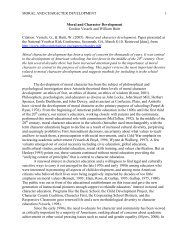The Sounds of Transliterated Letters from Arabic and Persian ...
The Sounds of Transliterated Letters from Arabic and Persian ...
The Sounds of Transliterated Letters from Arabic and Persian ...
You also want an ePaper? Increase the reach of your titles
YUMPU automatically turns print PDFs into web optimized ePapers that Google loves.
<strong>The</strong> <strong>Sounds</strong> <strong>of</strong> <strong>Transliterated</strong> <strong>Letters</strong> <strong>from</strong> <strong>Arabic</strong> <strong>and</strong> <strong>Persian</strong><br />
(courtesy <strong>of</strong> George deF. Lord, Athens, GA)<br />
Vowels <strong>Sounds</strong> like English letter: Example<br />
a<br />
“a” as in hat or man<br />
á “a” as in father Riḍván (rez vahn)<br />
ah, aḥ<br />
áh, áḥ<br />
short, not long “a,” plus “h” (like<br />
“ack” without the k sound)<br />
as “ah” is usually pronounced in<br />
English. If followed by another<br />
vowel, pronounce the “h.”<br />
Aḥmad<br />
Alláh-u-Abhá (Allah-haw-<br />
AbHAH, not “Allow Abhá!)<br />
ar like “ar” in “Larry” mard (<strong>Persian</strong> for “man”)<br />
aw like “ow” in “flow” Naw-Rúz<br />
i (no accent) e as in bed Riḍván<br />
í (with acute accent) i as in machine Bábí<br />
u like a in “wall” or o in “for” ‘Abdu’l-Bahá<br />
ú like “oo” in “food” or u in “flute” Bárfurúsh (note that the two<br />
u’s have different sounds)<br />
Consonants<br />
‘ (ain) like the stop in “uh-oh” Bahá’u’lláh<br />
b<br />
ch<br />
d<br />
b<br />
ch as in “church”<br />
d<br />
ḍ (note dot underneath) z Riḍván<br />
dh z Ádhirbáyján (Azerbaijan)<br />
f, g, h f, g, h respectively
gh<br />
ḥ (with dot underneath)<br />
sort <strong>of</strong> like French or German “r”;<br />
same as “q”; in a pinch, pronounce<br />
it like hard English “g.”<br />
h (no difference in <strong>Persian</strong><br />
pronunciation)<br />
Yá Alláhu’l-Mustágháth!<br />
Raḥmat, Aḥmad<br />
j, k, l, m, n, p j, k, l, m, n, p respectively.<br />
kh like “ch” in German Khádim (Khadem)<br />
q see “gh” Qá’im<br />
r like Spanish r (quick trill) Riḍván<br />
s, t, v, y, z s (hard), t, v, y, z respectively<br />
ṣ, ṭ, ẓ (with dot<br />
underneath)<br />
s, t, z respectively - no change in<br />
<strong>Persian</strong> pronunciation.<br />
th s (hard) Thábit (name: Sabet)<br />
zh like s in “pleasure” Mahmúdnizhád<br />
Shoghi Effendi was born <strong>and</strong> raised in <strong>Arabic</strong>-speaking Palestine (considered part <strong>of</strong><br />
Syria at the time), <strong>and</strong> <strong>of</strong> course spoke fluent <strong>Arabic</strong>. When using <strong>Arabic</strong>-language Bahá'í terms<br />
or quoting the Writings while speaking with <strong>Persian</strong>s, he would use <strong>Persian</strong> pronunciation; with<br />
Arabs, he used st<strong>and</strong>ard <strong>Arabic</strong> pronunciation. With western Bahá'ís, he used the <strong>Persian</strong><br />
pronunciation <strong>of</strong> <strong>Arabic</strong>.<br />
<strong>The</strong> <strong>Persian</strong> way <strong>of</strong> pronouncing both <strong>Persian</strong> <strong>and</strong> <strong>Arabic</strong> tends to put equal emphasis on<br />
all syllables, or accent the last syllable slightly more, as in French.<br />
“<strong>Persian</strong>” or “Fársí” Same language. Shoghi Effendi, the Universal House <strong>of</strong> Justice <strong>and</strong><br />
the National Spiritual Assembly are very, very consistent: they always say “<strong>Persian</strong>” when<br />
writing in English. Why Because the language has always had that name in English, just as we<br />
say “Spanish,” “French” <strong>and</strong> “<strong>Arabic</strong>” rather than “español,” “français” <strong>and</strong> “ ‘árábí.” (It isn’t<br />
something to make a fuss over, though.)<br />
Turkish is yet another language <strong>of</strong> revelation, as ‘Abdu’l-Bahá wrote a few tablets in<br />
Turkish. <strong>The</strong> title “Effendi,” as in “‘Abbás Effendi” (‘Abdu’l-Bahá) <strong>and</strong> Shoghi Effendi, is<br />
Turkish. It was probably chosen because ‘Akká <strong>and</strong> Haifa were under Turkish control until<br />
World War I, when the British took control <strong>of</strong> Palestine.<br />
Bahá’u’lláh may well have learned Turkish, but His Tablets to the Sultan <strong>of</strong> Turkey were<br />
revealed in <strong>Arabic</strong>.


